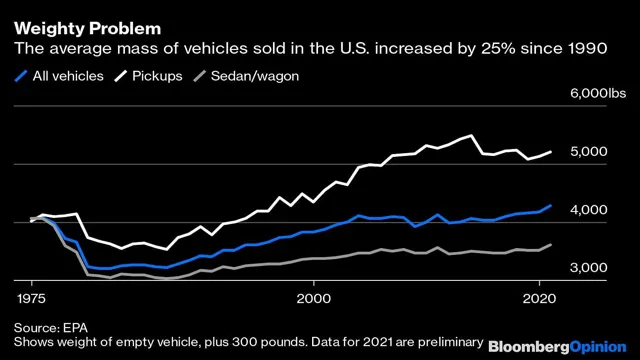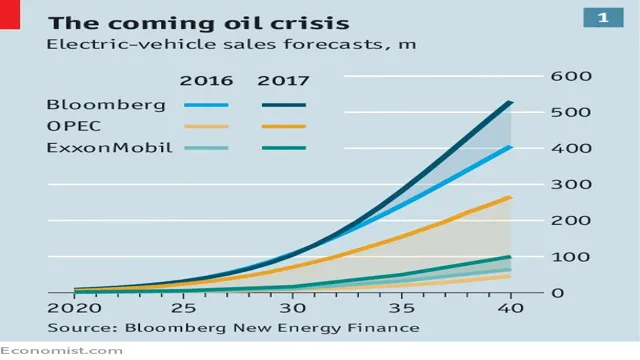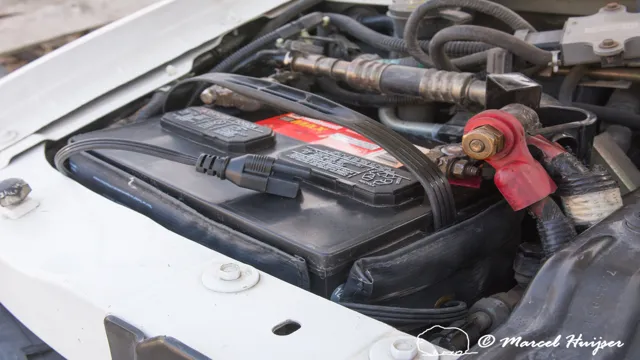The Shocking Anticipated Growth of Electric Battery Cars: A Look into the Future 2025-35
Electric battery cars have been growing in popularity over the years and are projected to continue to do so in the coming decade. By 2025, it is estimated that more than 10% of new cars sold globally will be electric, a number that is expected to reach 35% by 203 This growth can be attributed to various factors such as government policies, advances in technology, and changing consumer attitudes towards sustainability.
As the world becomes more environmentally conscious and cities implement stricter regulations on emissions, electric cars have become an attractive option for many. Moreover, with the improvement and expansion of charging infrastructure, range anxiety is becoming a thing of the past. The automotive industry has also been investing significant resources in the development of electric vehicles as the future of transportation.
One of the biggest advantages of electric cars is the lower cost of ownership compared to combustion-engine cars. Electric cars have fewer moving parts and require less maintenance, which results in lower repair costs. Moreover, the cost of batteries, which are the most expensive component of electric cars, has been decreasing rapidly, making them more affordable.
Although electric cars still have some way to go before they fully replace combustion-engine cars, the growth that they have seen in recent years is a positive sign. With technological advancements and widespread adoption, electric cars have the potential to revolutionize the automotive industry and pave the way for a greener, more sustainable future.
Overview of Forecasted Growth
As the world continues to shift towards eco-friendly forms of transportation, the forecasted growth of electric battery cars between 2025-2035 is expected to be significant. With advancements in technology, the cost of batteries has decreased, making them more accessible to consumers. This change has resulted in a surge in demand for electric cars, resulting in automakers worldwide ramping up their investment in the manufacturing of electric car technology.
Many governments are also pledging to reduce carbon emissions, which is a significant contributing factor to the increasing demand for electric cars. As a result, the forecasted growth for electric battery cars between 2025-2035 is set to be unprecedented, with the demand for these eco-friendly vehicles increasing exponentially. The changes in the automobile industry are both exciting and necessary as we strive towards a more sustainable future.
Projected increase in electric vehicle sales
Electric vehicle sales are projected to experience significant growth in the coming years. The growing demand for sustainable transportation and a shift towards renewable energy sources are driving this increase. According to IEA’s Electric Vehicle Outlook 2020 report, the global stock of electric passenger cars grew to
2 million in 2019, an increase of approximately 1 million from the previous year. The same report forecasts that the number of electric cars on the road will reach 145 million by 2030, representing approximately 7% of the global passenger car fleet.
This projection is partly influenced by countries tightening regulations on carbon emissions and supporting incentives for the purchase of electric vehicles. With advancements in technology and battery performance, electric vehicles are becoming more accessible to consumers, with many car manufacturers offering a range of models at varied price points. As a result, more people are considering electric vehicles as a viable transportation option, which will continue to drive sales growth in the future.

Factors driving growth
Forecasted Growth The outlook for the growth of various industries is looking positive, with several factors driving this trend. One key driver is technological advancements, particularly in the areas of automation and artificial intelligence. These developments are helping to streamline operations, increase efficiency, and reduce costs, ultimately boosting productivity and revenue.
Another factor is the growing demand for sustainable and renewable resources, which is leading to increased investment in clean energy and related industries. Additionally, the steady growth of the global population and expanding middle class is fueling demand for a wide range of goods and services, from healthcare and education to consumer products and entertainment. As businesses continue to innovate and adapt to these changing trends, the forecast for future growth remains strong.
Impact on Society and the Environment
The anticipated growth in electric battery cars from 2025-35 is expected to have a significant impact on society and the environment. On the one hand, it’s exciting to imagine a future where emissions and pollution are significantly reduced, and we can breathe cleaner air. On the other hand, the transition from internal combustion engines to electric cars will require significant investments in infrastructure, specifically in the charging network.
Furthermore, the production of batteries and their disposal at the end of their lifecycle poses environmental challenges. Battery production requires the mining of finite resources used in the production of batteries, and the disposal of used batteries presents concerns over their potential environmental impact. Despite these challenges, there’s little doubt that electric cars are an essential part of the future of transportation and represent a significant opportunity to reduce emissions and fight climate change.
The changes from the anticipated growth in electric battery cars will likely lead to a cleaner and more sustainable environment, but we must remain aware of the environmental challenges presented by production and disposal.
Reduced dependence on fossil fuels
Reduced dependence on fossil fuels has a major impact on society and the environment. As more and more people embrace alternative sources of energy such as wind, solar, hydropower, and geothermal, the demand for fossil fuels decreases. This shift towards cleaner energy sources has several benefits.
For instance, it reduces harmful emissions that cause air pollution and contribute to climate change. Additionally, it helps to conserve natural resources and reduce the carbon footprint. By reducing reliance on fossil fuels, we can create a cleaner, safer and healthier environment for ourselves and future generations.
This shift also has positive impacts on society, such as creating new industries and job opportunities in the renewable energy sector. With the advent of new technologies, renewable energy sources are becoming more efficient and cost-effective, making them increasingly attractive to people and businesses alike. Ultimately, reduced dependence on fossil fuels is a win-win situation for both people and the planet, as we move towards a more sustainable future.
Decreased emissions and air pollution
One positive impact of decreased emissions and air pollution is the improvement of both human health and the environment. As we reduce the amount of pollutants we release into the air, we can see a decrease in respiratory problems, heart disease, and other illnesses related to poor air quality. This can have a ripple effect on society, as healthier people can be more productive and miss fewer days of work due to illness.
Additionally, the environment benefits from decreased emissions as it can prevent the destruction of natural habitats and decrease the severity of climate change. It’s like taking a deep breath of fresh air compared to breathing in smog-filled air. We can all benefit from taking steps to reduce emissions, such as using public transportation, carpooling, and investing in renewable energy sources.
By taking action, we can create a healthier and more sustainable future for ourselves and future generations.
Potential for growth in related industries
One potential positive impact of growth in related industries is the potential for positive societal and environmental effects. For example, as the renewable energy industry continues to grow, there may be a decrease in pollution and other harmful environmental effects caused by traditional forms of energy production. Additionally, as the demand for sustainable and eco-friendly products increases, companies may be incentivized to prioritize ethical and environmentally conscious practices in their production and supply chain processes.
These developments can have far-reaching effects on society and the environment, improving the health and well-being of individuals and the planet as a whole. By prioritizing sustainability and ethical practices, businesses have the power to contribute positively to the world while also experiencing potential growth and success.
Challenges and Opportunities
The anticipated growth of electric battery cars between 2025 and 2035 presents both challenges and opportunities. On one hand, the increase in demand for electric cars will undoubtedly put pressure on the already strained supply chain for minerals necessary for battery production. Additionally, there will be a need for infrastructure development to support the increased use of electric vehicles, such as charging stations and power grid upgrades.
On the other hand, this shift towards electric cars presents numerous opportunities, particularly for innovation and economic growth. There will be a need for advancements in battery technology, which could lead to breakthroughs in energy storage and renewable energy sources. Governments and companies that invest in this technology and infrastructure now could reap the benefits in the years to come.
Despite the challenges that come with growth, the shift towards electric cars has the potential to be transformative on a global scale.
Infrastructure changes needed
Infrastructure changes are essential for society to confront the challenges and opportunities of the 21st century. To realize the potential of smart cities, renewable energy, and other innovative technologies, old infrastructure must be updated. And the challenges to achieving this goal are numerous.
Aging infrastructure, limited transportation capacities, and a lack of political will are just a few of the major hurdles that must be overcome. But if we can find the political will and financial resources to invest in infrastructure improvements, we can create a more sustainable and resilient future. Improvements in infrastructure can increase the resilience of cities to natural and human-made disasters, boost economic growth, and improve the overall quality of life for citizens.
It’s time to start investing in new and smarter infrastructure to prepare for the challenges of the future and to lay the foundation for a more sustainable and prosperous world.
Investment opportunities in renewable energy
Renewable energy represents an incredible opportunity for investors, not just in terms of returns but also regarding the environmental impact of their investments. However, with any investment comes risks and challenges to overcome. One of the main challenges of investing in renewable energy is its dependence on government policies and subsidies.
Policies and regulations can have a significant impact on the success or failure of renewable energy projects, making it critical for investors to stay up-to-date on the latest developments. Another challenge is the initial cost of renewable energy infrastructure, which can be high. However, these costs are decreasing as technology improves and economies of scale are achieved.
Furthermore, these upfront costs are often offset by the long-term benefits of clean energy, including cost savings and increased market demand. Overall, investing in renewable energy requires a careful balancing of risks and opportunities, but with the right approach and research, investors can reap substantial rewards while contributing to a more sustainable future.
Future Trends and Predictions
With the anticipated growth in 2025-35 of electric battery cars, we can definitely expect to see some significant changes and trends in the automotive industry. As more and more consumers become aware of the environmental benefits and advantages of electric cars, we are likely to see a surge in demand for these vehicles. This, in turn, will lead to an increased focus on the research and development of electric car technology, as well as the expansion of charging infrastructure across the globe.
The shift towards electric mobility is also likely to lead to job growth in sectors related to EV manufacturing and maintenance, and as battery technology continues to improve, we may see significant advancements in range and performance. Additionally, the widespread adoption of electric cars could have some interesting ripple effects on the energy sector, potentially leading to new forms of renewable energy storage and distribution. Overall, it’s an exciting time for the automotive industry and the future of mobility.
Conclusion
In the coming decade, the world will see a surge in the number of electric battery cars on its roads. As we anticipate this growth, we must prepare for the changes that will come with it. From the necessary expansion of charging infrastructure to the development of more efficient and sustainable energy sources, we must adapt to meet the demands of this emerging market.
But while we navigate this new terrain, one thing is certain: the age of the internal combustion engine is waning, and with it, the pollution and inefficiency of the past. So let us embrace the future of electric battery cars with enthusiasm and optimism, and together, build a cleaner, more sustainable world for generations to come.”
FAQs
What is the anticipated growth of electric battery cars between 2025-35?
The anticipated growth of electric battery cars between 2025-35 is expected to be significant due to the increasing concerns about the environment.
How will the changes in electric battery cars impact the automobile industry in the coming years?
The changes in electric battery cars are expected to significantly impact the automobile industry in the coming years, as traditional car manufacturers shift towards producing electric vehicles.
What factors are contributing to the growth of electric battery cars?
Factors such as increasing environmental concerns, government policies, and advancements in technology are contributing to the growth of electric battery cars.
What are the benefits of electric battery cars over traditional gasoline-powered cars?
Electric battery cars are more environmentally friendly, cost-effective in the long run, and have lower maintenance costs compared to traditional gasoline-powered cars.






